11 of the Best Tips for Travel I Wish I Knew Earlier
The best tips for travel that every expert wishes they knew earlier.
Traveling, and learning how to travel well, is really a matter of trial and error. Sure, it sounds easy enough, but once you’re doing it for a while, you make lots of mistakes.
I certainly had a lot to learn when I started traveling. And if I’m honest, I’m still learning! It’s all about continuous improvement and learning as you go—Learning to laugh at yourself when needed and doing better!
Here is my list of the best tips for travel and what you should consider to up your travel game.
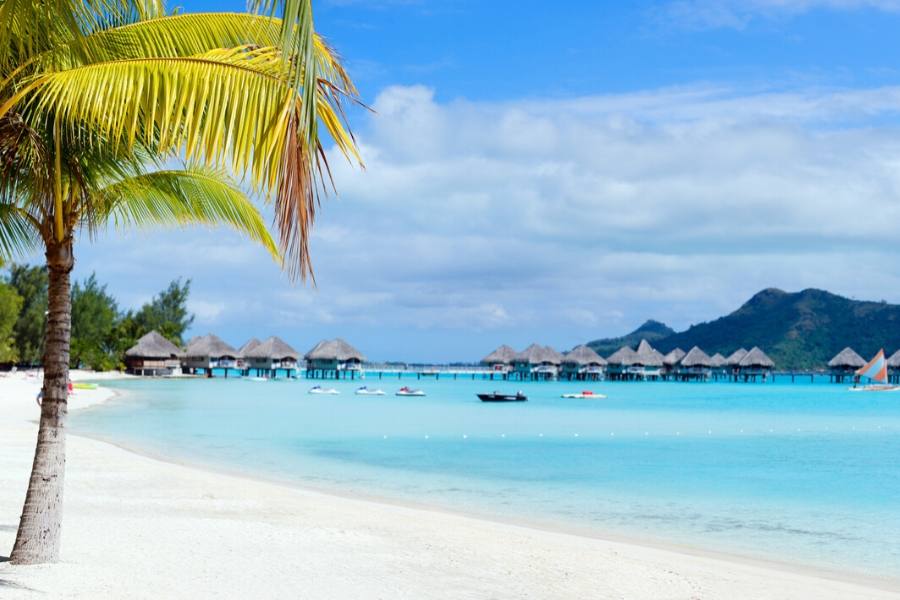
This post may contain affiliate links, which means I’ll receive a commission if you purchase through my links at no extra cost to you. Please read the full disclosure for more information.
1. Bring a Credit Card and ATM Card
I used to travel with just a credit card. At least until I (thankfully before the trip) read about the place in South America I was going to, Peru, that mostly only accepted cash. After that, sometimes, I would only bring an ATM card.
One problem with that is that it doesn’t get me points for miles for free trips. And, sometimes, they don’t work.
I recommend that you always have a backup and, at a minimum, bring both a credit card and an ATM card. It’s not a bad idea to consider a second credit card as well, just in case something happens with the first.
And, if you’re doing long-term travel, you may want to consider a duplicate ATM card just in case.
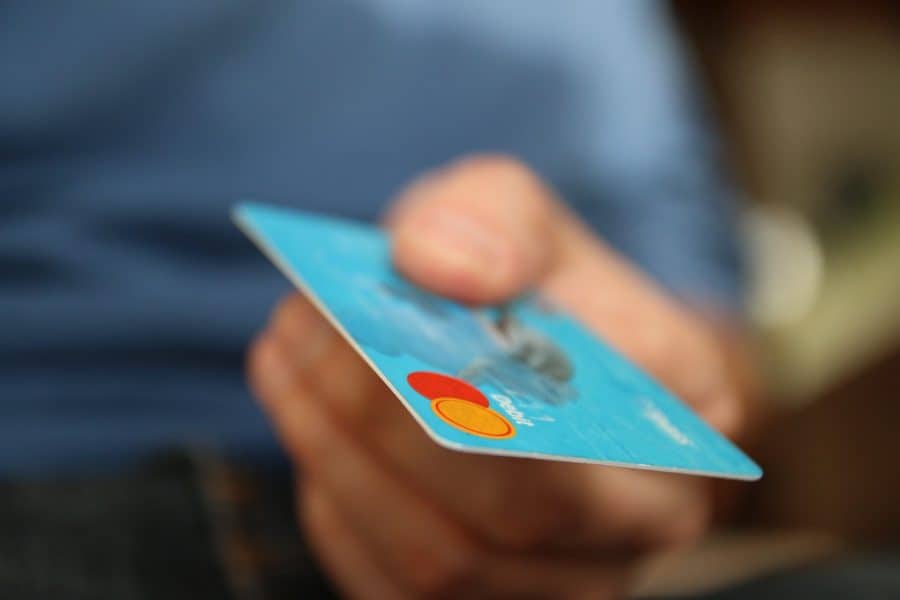
2. Bring a Water Bottle with a Filter
It’s a good idea to stay hydrated when you travel. It’s so easy to forget to drink when you’re on the go. However, you’ll pay for it if you end up dehydrated, dealing with a headache or worse.
You can usually buy water, but that’s a lot of waste—not very eco-friendly and an unnecessary expense. Instead, consider bringing a bottle you can refill. It’s also an easy reminder that you need to hydrate!
Also, you can’t always drink water where you travel. In some countries, it may not be safe to do so. And in many, the water may be drinkable. However, it may be different than the water you’re used to, which can cause some stomach upset.
The last thing you want to do on a trip is to battle an intestinal issue, as that’s no fun. Nothing says fun like traveler’s diarrhea, right?
So, in addition to bringing a bottle, consider bringing a filtered bottle. I love this Katadyn collapsible filtered water bottle, and there are now others available too. You not only can use it to drink from, but you can also fill other cups and bottles from it since you can squeeze water out of it.
I love this one as it easily fits in my messenger-travel bag. If you do get a regular, hard-sided water bottle, you can also use a carabiner to fasten it to your bag for safekeeping.
3. Don’t Overpack
When I think of my first trip to Europe, I can’t help but laugh. I was around 28 and went to London with my best friend, weighed down with the two most monstrous bags I could find. I had a large roller bag and a large garment bag, just to make sure I had everything I could possibly use.
I didn’t wear half of the clothes I packed, and since we changed locations during the trip, I struggled to carry it all. My friend laughed and (rightfully so) let me struggle with the bags. I probably should have just donated one and its contents to a charity.
I’d like to say I learned my lesson from the experience, but it actually took me many trips. I never brought that much again, but I still managed to overpack every single trip.
Now, I can pack for 16 days or more in an impressively-small international-sized carry-on bag and a small backpack. I bring layers so I’m covered for all temperatures. I re-wear clothes (as long as I don’t get nasty sweaty) and plan to wash them during the trip either in a washer or in the sink.
I go through what I pack over and over to see what I can reduce and only bring what I most need. Generally, I can purchase things where I go if I really feel I’m missing something, but I rarely have needed to. More often, that item would just sit in my bag unused.
Now, it’s a game—a competition of sorts, to see just how small I can go and how much room I can spare for souvenirs. It’s a fun way to make sure I’m packing minimally and being responsible about the space I use while being eco-friendly. I have small toiletry containers I refill, for example, so I’m always reusing them.
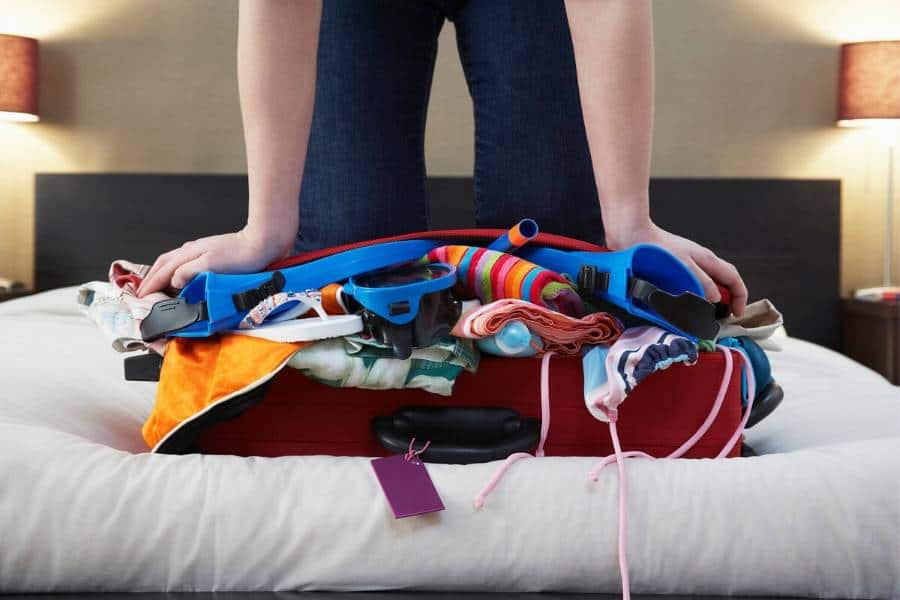
4. Bring Some Cash
You get the best exchange rates in banks and using credit cards. Though, I usually bring U.S. dollars and tuck them away just in case.
Sometimes, ATM cards don’t work, machines are broken, or places don’t accept credit cards. Many countries in the world are cash societies that largely don’t use credit, like in South America, for example.
Or, what if your wallet is stolen or your credit card has a fraud alert and is temporarily not usable? So many things can happen, and it’s a good idea to have access to cash if you need it.
I usually go home with the cash I bring, and I don’t plan to use it. Money exchanges (Cambios) don’t offer a great exchange rate. But, when you’re in a pinch, having a backup is a good idea.
I have run into issues, for example, when I went to Germany a few years ago. I tried to take out cash through my ATM card, and it wasn’t accepted for some reason. So, I then tried to use my credit card to buy train tickets, and it didn’t work.
(I learned later that they had flagged the transaction as fraud and declined it. This was even though I opened a travel alert notifying them of my travel and where.)
I was stuck, so I pulled out some of my cash and went to a Cambio to exchange it for Euros. Then, I inserted that into the ticket machine and got my train ticket.
Thankfully, when I got to my destination, I was able to get cash from an ATM and then contacted my credit card to lift the fraud alert. (On a side note, I’m grateful for fraud alerts as they can save us a lot of hassle, but it’s nice when the travel alert works!)
5. Make Sure You Have Phone Access
Our phones are quickly evolving and the networks with it. I now have global coverage on my phone that covers over 200 countries and generally has pretty good networks.
Though, in rural areas or countries that people don’t tend to travel to as much, I still don’t have coverage. And when I do, it’s often pretty slow. It’s a good idea, even so, to reach out to your carrier to see what options they offer for international coverage.
You also have other options, including getting a local SIM card if your phone is unlocked. I recently learned that if your phone is paid off with some carriers (like T-Mobile, yay!), you can unlock the phone. This enables you to use a local SIM when you travel.
You also have an option to purchase a local phone. I have even seen options to rent a local phone at some places. I’m sure this will continue to evolve.
There have been trips where I didn’t know much of this and assumed my phone would work. Though I figured using it might be expensive. Then, I was surprised to learn my phone didn’t work at all, and I had no internet access, though I could make calls.
Since I have no sense of direction and am reliant on my phone for navigation, this is a challenge! So, do yourself a favor and do your homework before you travel. Make sure you have at least some internet access and data. Even if you don’t use it or don’t use much of it, it’s a really good idea to have. You never know when you may need it.
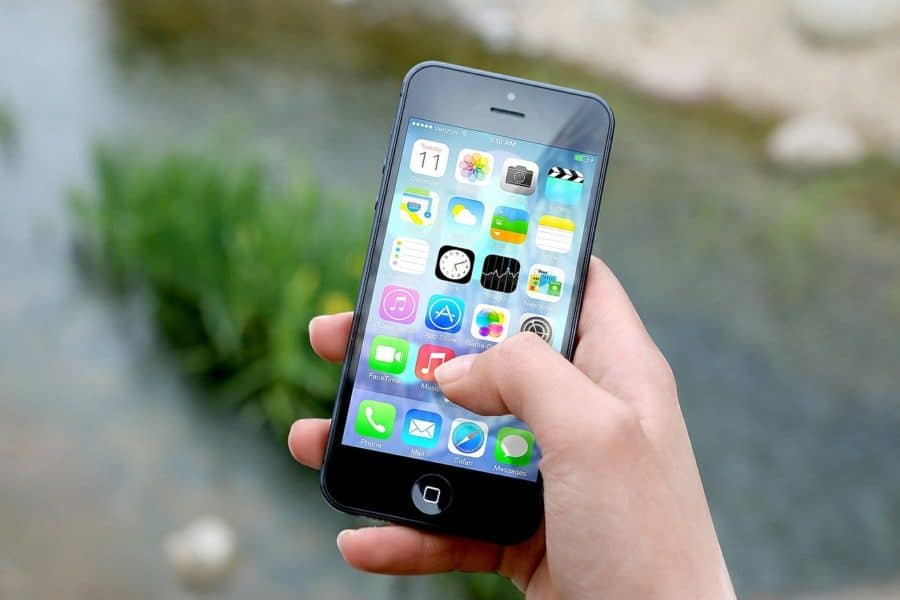
6. Purchase Travel Insurance
I’ll be honest—I never purchased travel insurance until a few years ago. It didn’t really occur to me for a long time. Then, when I heard about it more often, I figured the medical care in most countries was lower than in the U.S., so I didn’t need it.
I mistakenly figured my insurance would cover me as an out-of-network expense. Plus, I didn’t plan on going to the doctor when I was traveling, right?
Well, then I went to Thailand, and in the span of two days, I met two people who shared harrowing tales of being hospitalized. One was due to an injury, which was a broken bone requiring surgery. The other contracted dengue, a mosquito-borne illness that can be quite serious. She was hospitalized for a week.
I was terrified for the remainder of that trip, figuring the Universe had warned me, and now I was in for it! Thankfully, nothing happened during that trip, and I made it home safely. I decided then that I’d get travel insurance from that point on.
You never know what will happen. I was evacuated during an 8.3 earthquake and tsunami from the coast of Chile. A friend broke her ankle on the first day of her trip to Sri Lanka. I know someone else who needed a medical evacuation from the Amazon in a helicopter.
Don’t take a chance and consider getting the insurance. It’s usually only a few dollars a day, and while you likely won’t need it, you’ll be grateful you have it if you do.
World Nomads is the company I use, though there are others. Please read through the policy to make sure it applies to you and that it covers what you need. (World Nomads, for example, only covers people from certain countries.)
Many also cover things like trip interruption, loss of luggage, and other things like that.
7. Don’t Completely Rely on Electronics
I used to bring thick print-outs of my travel information, including flights, hotels, plans, tickets, etc. Then I went the opposite extreme and carried nothing unless a paper copy of a ticket was required. But I learned my lesson, and now I have found a happy medium.
I arrived at my destination and knew my phone battery was low. But, I thought it had enough charge to make it to my hotel. Nope, it did not! I had no paper copies with the hotel address and no backup.
So, when I got into the taxi and told him my destination, I figured I’d be ok as what taxi driver doesn’t know the location of every single hotel in a massive city? I thought they were all magic that way, but sadly, no, and this was before everyone had phones.
I had to leave the taxi, return to the airport, find an outlet, and charge my phone. Thankfully, I realized the issue before we had left.
I have also had similar situations where I have been traveling, and my phone battery died (you may be noticing a theme at this point), and I had no charger.
Make sure you either print out important things like hotel addresses or have another piece of electronics with the information. I don’t always print much out when I bring my laptop, as I know it can be used as a backup source for the information I need. But when I don’t, I print important things like hotel addresses.
8. Bring a Backup Phone Battery
Perhaps you saw this one coming! But yes, it’s a good idea to invest in a backup phone battery, especially if you rely on your phone for navigation.
I am not sure why I didn’t think of it before, and I have only used one for the last couple of years. It has saved my bacon numerous times, though, and I highly recommend bringing it on every trip.
Once, I was in a small city in Portugal called Guimarães. I had an amazing day on my day trip visiting this UNESCO World Heritage Site, exploring the historic city center, and taking the cable car up to a place with amazing views of the city. The day was pure magic.
I was heading back to the bus stop when my phone died. Thankfully, a sweet old man asked if I needed help (well, I think that’s what he asked, and unfortunately for me, he didn’t speak English).
I remembered the bus stop was near a shopping mall, and thankfully he knew “shopping mall” in English. He was so incredibly kind when I couldn’t understand his directions that he walked me partway there, pointing me the rest of the way. I got really lucky, and I’m so grateful to him.
9. Bring Copies of Important Documents
As I mentioned earlier, I was on the coast of Chile when an 8.3 earthquake hit. The area was evacuated, and when the sirens started to go off, we raced from being right by the water to climb as high as we could to stay safe. It was pretty terrifying!
My friend and I had met up with a gal we met on a walking tour who was from Australia, and she joined us to enjoy the Chilean Independence Day festivities. Once we stopped climbing, she realized that she had left everything in the hotel.
She had no money on her and no identification, including her license or her passport. She got lucky, and we didn’t end up needing it, but if we had to check into a hotel or if something should have happened to us, there would be no real way to identify her. Sobering thought.
Another good reason to make copies of things like your passport is if it were to be stolen, you have documentation of your citizenship that you can take to your country’s local embassy to get a replacement. I suspect you could get one regardless, though it would be much more difficult.
I bring 2-3 copies of my passport and any cards I bring, including my ATM and credit card, both front and back. This way, if either is stolen, I have the card number and the number to call to notify so it’s taken care of quickly.
Thankfully, I haven’t needed to use my copies, but better to have them and save a massive headache! You can take a picture of them with your phone as well, but don’t rely on that!
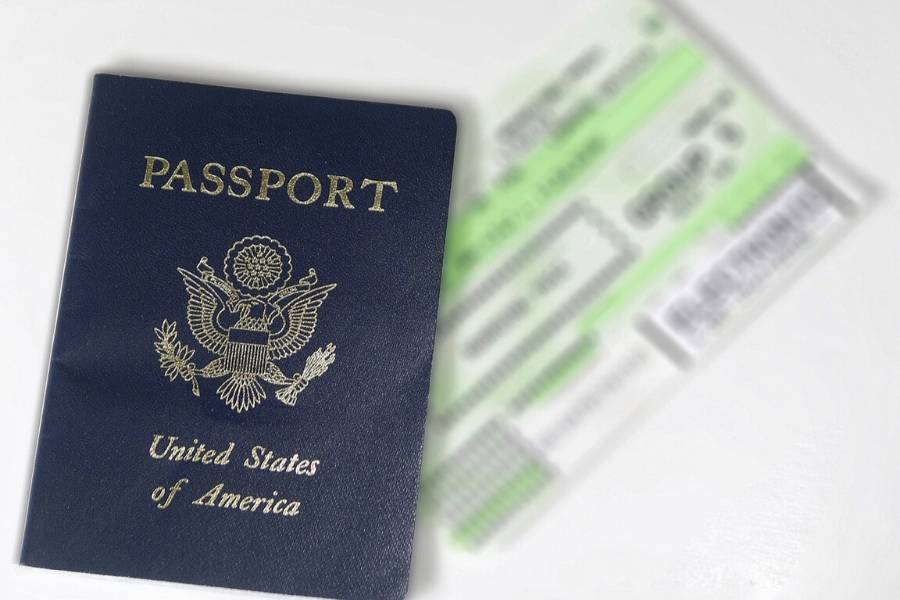
10. Learn a Few Local Phrases
This one is common courtesy and just plain common sense. Though, it should be said and included on any list of travel tips. It’s always good to learn the basics when you go to a country with a native language that is different from your own.
I usually try to learn some key words and phrases. Things like hello, goodbye, please, thank you, water, wine, bathroom, and do you speak English? At a minimum, hello and thank you, though the rest are handy.
In many countries, people don’t know any English. This is especially the case in rural areas and in developing countries. And in some countries, people may resist people who do not attempt their language.
11. Be Flexible with Plans
My last tip is to be flexible with your plans and not over-plan your trip.
I’m a Project Manager by trade. Well, it’s what I’ve done the last few years, so I’m all about planning. I enjoy it and feel more comfortable with a good plan.
But my advice to you is—don’t. That’s not to say don’t plan at all, but definitely don’t plan your trip so tightly around an agenda that you have no time for anything else.
There is only so much you will learn when you research an area, and you just may find something interesting that you want to check out when traveling. Leave time in your schedule to explore and to just be.
If you plan your trip too tightly, it can feel like work, and that’s no fun at all. Instead, be open, and though you will want to plan certain things—who goes to Paris without seeing Notre Dame and the Arc de Triumph? Make sure you leave free time to wander and wonder.
Also, be flexible with your planning and take the road less traveled. It’s a great idea to step off the tourist path to see some of the sites off the beaten path. Whether it be a place in a city or a complete day or weekend in a town, do it. You’ll thank yourself for the experience.
Travel Like a Pro with These Tips for Travel
We all learn from our mistakes, but for these, you don’t have to! Give this list of my best tips for travel some thought and consider them when you’re planning for your next trip.
You Might Also Like
- 10 of the Best Reasons for Traveling
- How to Be a Good Travel Partner
- 12 of the Best Ways to Stay Healthy While Traveling
- 13 Tips for Overcoming a Language Barrier When You Travel
- Tips for Air Travel: How to Make It Easier
Like it? Pin it!
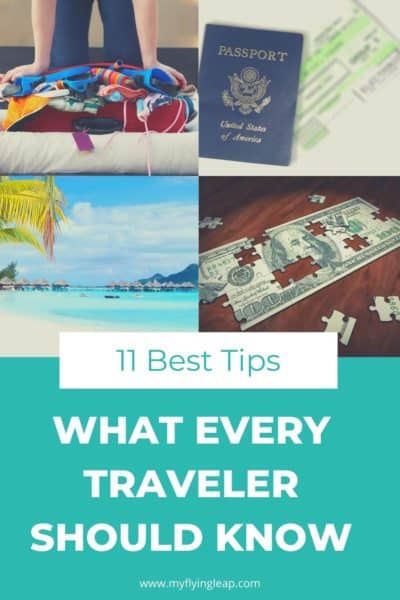
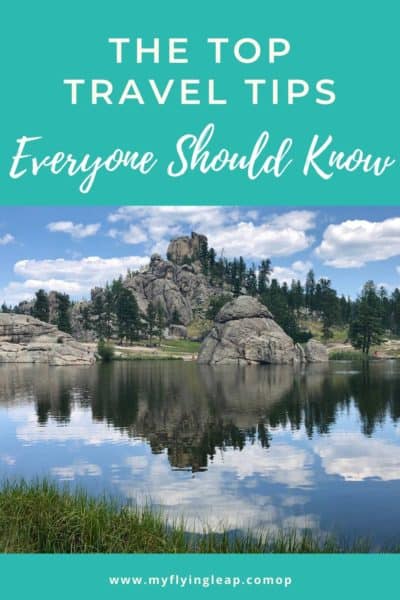


Love these tips, Sam! I have to admit, I’m not great at some of these – like packing lightly or carrying copies of important documents. I’ve been lucky so far, but I think I may need to change my habits!
I completely understand. I didn’t do either until a few years ago and it’s not easy! Practice makes perfect for sure. Thanks for sharing.